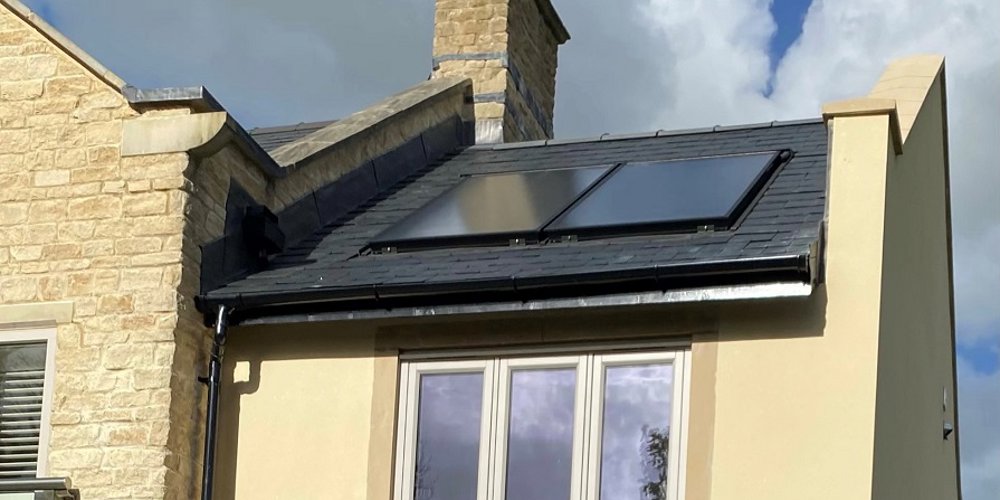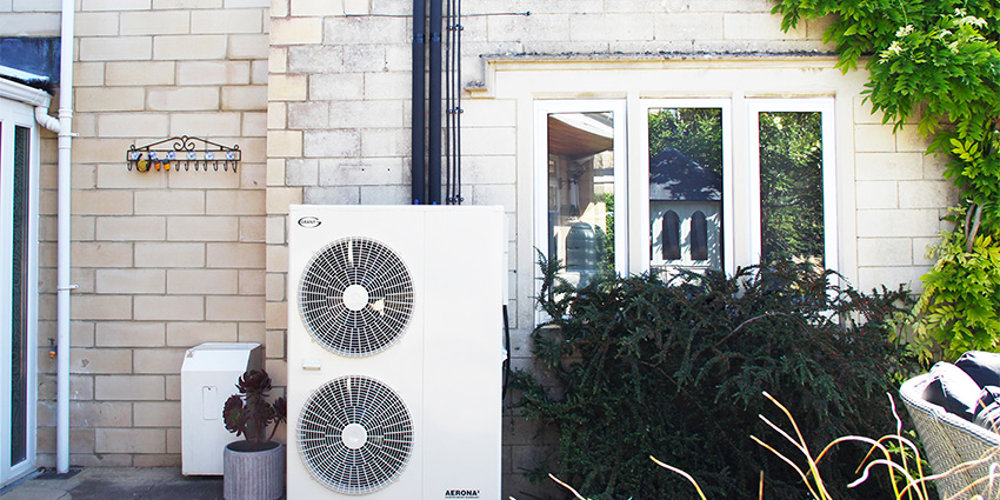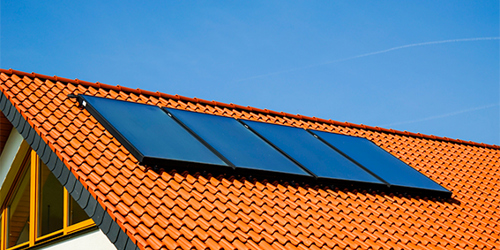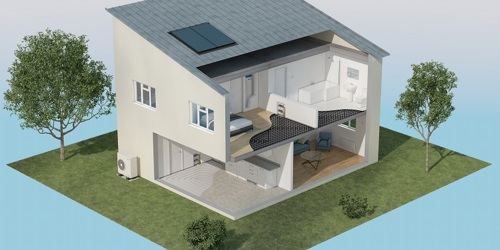Products
Knowledge & Support
Explore our Knowledge Hub:
Tips & Advice Education Area Case Studies The Grant House Virtual House FAQs Glossary Visit the Knowledge HubLooking for Help & Support:
Product Support Find an Installer Find a Merchant Extended Warranties ServicePlan Product GuaranteesProducts
Knowledge & Support
Explore our Knowledge Hub:
Tips & Advice Education Area Case Studies The Grant House Virtual House FAQs Glossary Visit the Knowledge HubLooking for Help & Support:
Product Support Find an Installer Find a Merchant Extended Warranties ServicePlan Product Guarantees
Solar Thermal
Utilise the power of the sun to provide hot water for your home with a Grant Solar Thermal System which will help lower fuel bills and carbon emissions while also reducing household dependency on fossil fuels.
An environmentally friendly alternative to traditional energy sources and fossil fuels, solar thermal technology has no carbon emissions and it efficiently uses the energy from the sun within a central heating system to provide hot water. Grant Solar Thermal systems are compatible with different types of roof and can be easily incorporated into an existing or new heating system. Furthermore, maintaining solar thermal systems is simple and straightforward.
Have questions about solar thermal systems? Please visit our frequently asked questions here.
Grant Solar
Collectors
- Unique patented system designed to ensure maximum heat transfer from the sun
- Suitable for installation with gas, oil and renewable heating systems
- Solar Keymark approved
Grant WinterSol
Solar Thermal Accessory
- Provides a fully heated cylinder when solar gain is low to ensure that hot water demand is satisfied
- Straightforward to operate and use
- Can improve system efficiency
Grant CombiSol
Solar Thermal Accessory
- Achieves optimum control of hot water delivery to taps
- Cost effective solution to combining two energy sources within a heating system
- Compatible with most combi boilers and fuel types
How can we help you today?
Find your Grant product
Help me find the right heating solution for my home
Find the best heating solution for your home and discover different types of heating systems available by using Grant UK product configurator tool

Online Installer Search
Find a Grant UK Installer
Search our local network of accredited installers to install, repair or service your Grant UK product.

All of our products are supplied through a network of merchants - please click here to read more about how to order Grant products.
Frequently Asked Questions about Solar Thermal
A Solar PV system uses panels (usually called ‘modules’) that generate electricity in the presence of sunlight. The amount of electricity produced depends on the intensity of the sunlight. Solar thermal, on the other hand, uses sunlight to heat a fluid. In the case of Grant solar collectors, it heats a glycol/water solution within the collector. This heated fluid is then circulated from the collector to a cylinder where the heat is transferred to produce hot water.
Read MoreSolar thermal collectors cleverly extract the free energy from the sun and transfer this energy to heat a home's hot water system. The collector features serpentine pipework beneath the top layer of glass, through which a special solution flows - as this fluid passes through the collector, the fluid is heated up and then is transferred away from the collector to then heat up water stored within a cylinder which will fulfil hot water demands at the tap. Solar thermal collectors are efficient and an eco-friendly solution for heating domestic hot water, utilising energy from the sun and reducing a home's reliance on fossil fuels.
Read MoreMany people believe that solar collectors only work in the summer, however this type of free energy is available throughout the year. From May to September, solar thermal could produce 100% of the energy required for heating your domestic water. Grant collectors operate not just with direct sunlight, but also diffused sunlight, so they even work on cloudy days.
A Grant solar thermal system requires a cylinder with a solar coil. In many cases this will be a ‘twin coil’ cylinder with both a boiler coil and a solar coil. This may well mean that your existing hot water cylinder will have to be replaced by a suitably sized twin coil cylinder to maximise the performance of your solar thermal system.
Yes, solar thermal collectors can be installed as part of a new heating system or they can be added to an existing heating system. Read more about Grant Solar Thermal Systems here.
Case Studies

Grant Solar Thermal system helps family home reduce fuel bills
A Grant Solar Thermal system has been installed at a five-bedroom property with gas central heating, helping the family to not only significantly reduce their carbon footprint but also lower their monthly heating bills.

Grant renewable heating system helps family reduce their energy costs
A family home in Wiltshire has made the move from a gas central heating system to a renewable solution featuring an Aerona³ air source heat pump, a solar thermal system and QR hot water cylinder all supplied by Grant UK, helping the household to reduce their dependency on fossil fuel and lower their energy bills.






